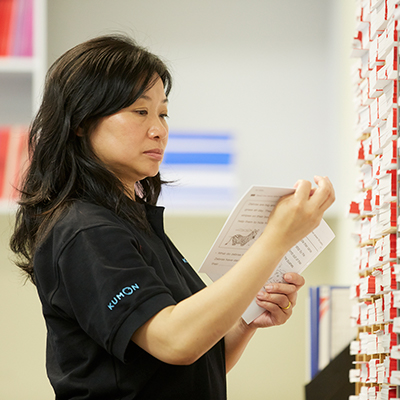jwells
The COVID-19 pandemic forced sweeping change to how learning is delivered to students. Many students in Australia and New Zealand have been required to learn at home at some point throughout 2020.
This disruption has prompted the widely asked question, “What is the impact of COVID-19 on children’s learning?”
It is a question not only parents might be asking in relation to their own children, but also teachers, principals, university-based education professors and other experts; education department officials, and government ministers. It prompts many hypotheses and theories. It seems there is not yet a clear answer everyone can agree upon.
This doesn’t mean we cannot work to minimise disruption to children’s learning. With the right toolkit, current and future generations can be equipped to be ready to keep learning through uncertainty. In our article about Sandhya, a former Kumon student and future University of Oxford student, we quoted Professor Andrew Martin, an educational psychologist from the University of New South Wales.
Professor Martin stated students will feel empowered to keep learning through uncertainty if educators are able to draw learners’ attention to what is in their control: the effort students apply to their studies, their strategies, and their individual attitudes towards learning.
Kumon draws students’ attention to the impact of their efforts through assigning the right level of practise and repetition. Kumon helps students to develop self-learning strategies for acquiring and applying new knowledge. Advanced study through Kumon boosts confidence, an attribute that is conducive for navigating uncertainty by encouraging students to ‘have a go’.
These are components of a toolkit that Kumon can help students to develop to keep learning through uncertainty. They’re not the only tools students can use. Dr Katrina Barker, an education expert from Western Sydney University, says individualised approaches to learning are helpful for supporting students during times of uncertainty.
Dr Barker says individualised learning not only allows students to learn at their own pace, it requires students to develop and apply self-regulation, self-discipline and the ability to learn independently. Being an independent learner will help students to keep learning through uncertainty, as they can place trust in their own abilities.
Kumon is an individualised method of learning that supports students to become independent, self-learners.
All Kumon students require support at various different times, depending on their level of independence. For those not yet able to learn independently, they require support, from both parents and educators, to ensure they can continue to learn through uncertain times.
“It helps [for parents] to set a week day routine, and build in time for school [and extracurricular learning], work, exercise, and free time”, explains Associate Professor Penny Van Bergen, an educational psychologist from Macquarie University.
“This provides a sense of normalcy, and communicates to children when you will and won’t be available.”
Kumon Instructors support students by creating an individualised study plan for each student, and sending home the worksheets they are ready to learn next on their own. For students who attend face-to-face classes in the Kumon centre, Kumon Instructors provide in-person instruction and guidance. Students on entirely home-based Kumon programmes also receive instruction and guidance, but remotely through electronic means.
“All children intrinsically want to develop their abilities and they all have the potential to do so. Responding to these desires, thus helping them to grow without limits, not only makes the children and their parents happy, but is essential for society”, wrote Toru Kumon, Kumon’s late founder, in Yamabiko, a publication for Kumon Instructors.
Kumon is a learning method that supports students to keep learning through uncertainty.
Support is provided by Kumon Instructors directly to the students who may need it, while capable students are allowed to keep progressing independently. Parents are supported and encouraged by their Kumon Instructors to help their children to make progress through their learning.
The future, by its very definition, is always uncertain. COVID-19 heightened uncertainty by adding new layers of complexity and unpredictability to everyday life. But with the right tools, students can continue to make strong progress in their learning, in spite of uncertain times.
This article featured in our last edition of Potential magazine. We invite you to read the magazine to learn more about how Kumon has supported students through uncertainty.























